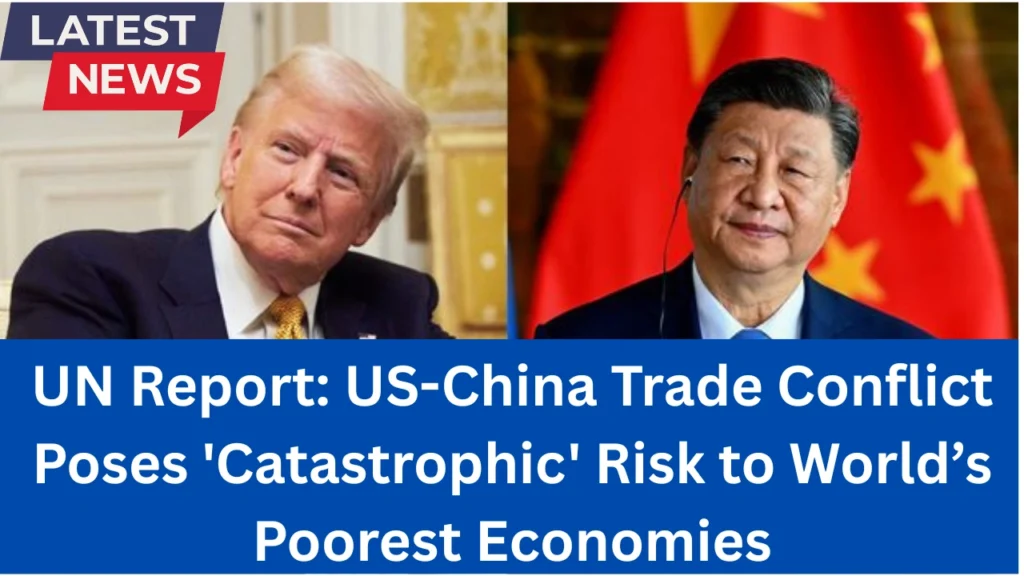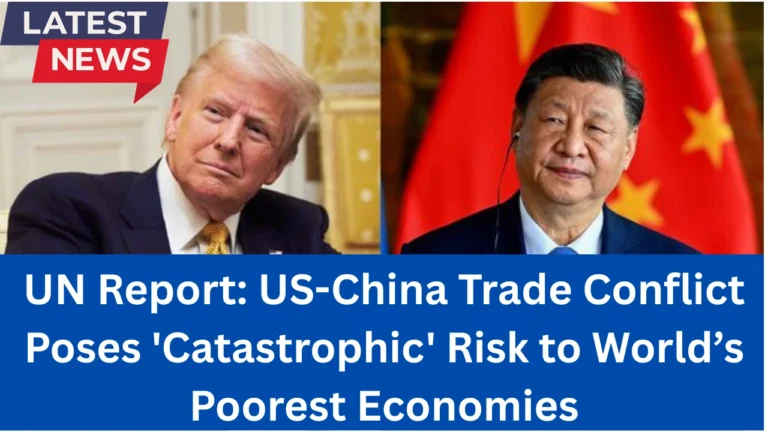As the United States and China continue to escalate their trade tensions through successive waves of punitive tariffs, the International Trade Centre (ITC), a joint agency of the United Nations and World Trade Organization, has issued a stark warning about the devastating global fallout, especially for developing economies.

U.S.-China trade disputes "very damaging to everybody," says UN chief economist pic.twitter.com/rrRKxPYu55
— China Xinhua News (@XHNews) May 28, 2019
The agency’s executive director, Pamela Coke-Hamilton, sounded the alarm this week, stating that the tit-for-tat tariffs between the world’s two largest economies could inflict greater damage on developing countries than the removal of foreign aid.
“If this escalation between China and the U.S. continues, it will result in an 80% reduction in trade between the countries, and the ripple effect of that across the board can be catastrophic,” Coke-Hamilton said.
Trade War Escalation: Tariffs Hit New Highs
In recent developments, China announced fresh duties of 145% on U.S. goods, a direct response to the 125% tariffs imposed by President Donald Trump’s administration. The tariffs build upon earlier levies, including a 34% hike in April and a 20% penalty targeting Chinese fentanyl-related exports.
Although the U.S. temporarily paused some of these tariffs for 90 days, the overall trade relationship remains volatile, with no clear resolution in sight.
“Tariffs could have a much more harmful impact than the removal of foreign aid,” Coke-Hamilton warned, pointing out that such economic warfare could drastically reduce trade volumes and depress global GDP.
Global Trade and GDP at Risk
According to data compiled by the International Trade Centre, the ongoing trade war could shrink global trade by 3–7% and result in a 0.7% drop in global GDP. While such figures may seem marginal on paper, they represent billions of dollars in lost income, particularly for economies with high dependency on trade with the U.S. or China.
“When the two main global economies impose tariffs, it will affect everybody, not only the economies engaged in the tariff war,” noted Rebeca Grynspan, head of the United Nations Conference on Trade and Development (UNCTAD), during a recent interview with UN News.
Developing Nations on the Frontline
The most severe consequences of the U.S.-China tariff war are expected to be felt by emerging economies and least developed countries (LDCs). Many of these nations rely heavily on export-driven economies and are tightly woven into global supply chains involving American and Chinese firms.
Bangladesh
Coke-Hamilton cited Bangladesh as a key example. With U.S. tariffs on textiles reaching 37%, the ITC estimates that Bangladesh could lose up to $3.3 billion in export revenue an enormous blow to an economy where garment manufacturing employs millions.
Sri Lanka
Sri Lanka, already reeling from a debt crisis and economic downturn, is also bracing for a severe impact. The U.S. is Sri Lanka’s largest single export market, accounting for about 25% of its $12 billion in merchandise exports. A 44% U.S. tariff on Sri Lankan goods could jeopardize its tentative economic recovery.
African Nations
A host of African countries also stand at risk. According to Alex Vines, director of the Africa programme at the Chatham House think tank, countries like Mauritius, Madagascar, Lesotho, and South Africa could see their export volumes sharply decline due to tariff-induced disruptions.
Moreover, the future of the African Growth and Opportunity Act (AGOA)—a U.S. trade preference programme set to expire this year—is also uncertain. If President Trump’s administration does not renew the agreement or decides to terminate it prematurely, dozens of African countries could lose preferential access to U.S. markets.
75+ Countries Appeal for Relief
The global apprehension surrounding the trade war is evident. According to diplomatic sources, more than 75 countries have appealed to the United States, requesting waivers, tariff exemptions, or more favorable bilateral arrangements in the wake of the new levies.
But with the Trump administration pursuing a transactional, deal-by-deal trade strategy, most of these appeals remain unresolved. Many foreign governments are also wary of entering negotiations without clear guidelines or legal commitments from Washington.
Supply Chains and Multilateral Trade at Risk
Beyond tariffs and bilateral relations, the broader multilateral trading system is also under threat. The back-and-forth duties between the U.S. and China risk fragmenting global supply chains, especially in industries like electronics, textiles, automotive components, and agricultural products.
Countries that serve as intermediate suppliers to either the U.S. or China are finding themselves caught in the crossfire, with production costs rising and demand shrinking.
“Global supply chains are being rewired,” said an ITC analyst. “And in that process, the weakest economies are the most likely to be cut out.”
Aid Cuts vs. Trade Collapse
Coke-Hamilton emphasized that while foreign aid cuts often spark global outcry, the economic damage from collapsed trade flows could be far worse.
“Foreign aid is in the billions. But trade is in the trillions,” she noted. “A few percentage points lost in global trade can wipe out years of development progress.”
This underscores the urgent need for coordinated action among multilateral institutions, donor nations, and trade partners to mitigate the fallout and support vulnerable economies.
UN Calls for Diplomacy and Dialogue
The United Nations has called for immediate de-escalation and renewed dialogue between the U.S. and China to prevent the trade conflict from inflicting further global harm.
UNCTAD and the ITC have proposed the following measures:
- Temporary suspension of new tariffs to allow diplomatic negotiations
- Expansion of trade finance and credit lines to developing countries
- Strengthening regional trade agreements to reduce dependence on global superpowers
- Monitoring of trade impacts on LDCs with early warning systems for economic shocks
Conclusion: A Global Call to Action
As U.S.-China trade tensions continue to escalate, the world’s poorest and most vulnerable economies are paying the price. What began as a bilateral trade dispute has now grown into a global crisis, with the potential to reverse years of progress on poverty reduction, industrial development, and global integration.
The international community, led by institutions like the UN, WTO, and ITC, must step in to mediate the crisis, promote transparent trade norms, and ensure that the benefits of globalization are not destroyed by economic nationalism and tariff wars.
The stakes are high—not just for Washington and Beijing, but for millions of lives across the Global South.

